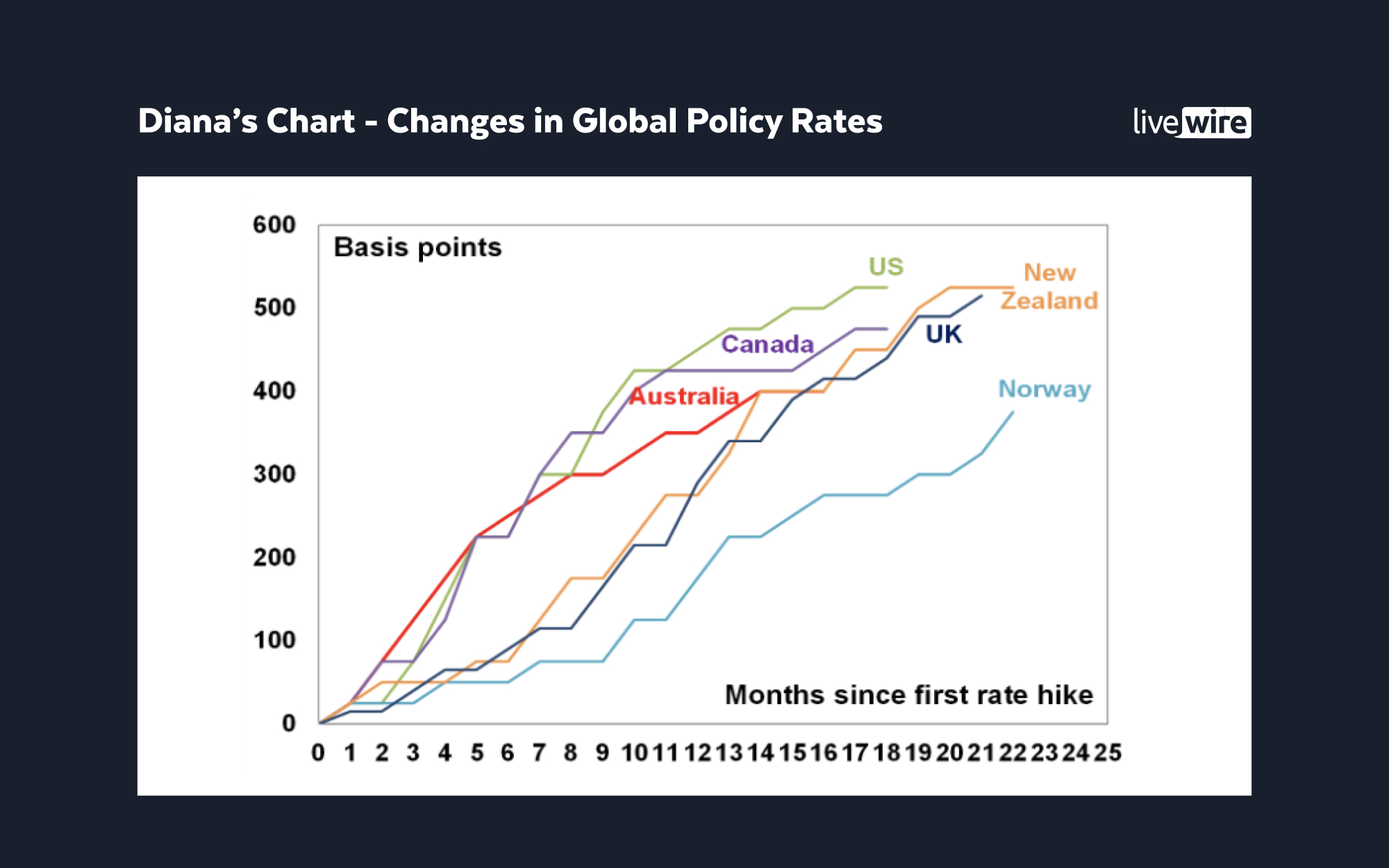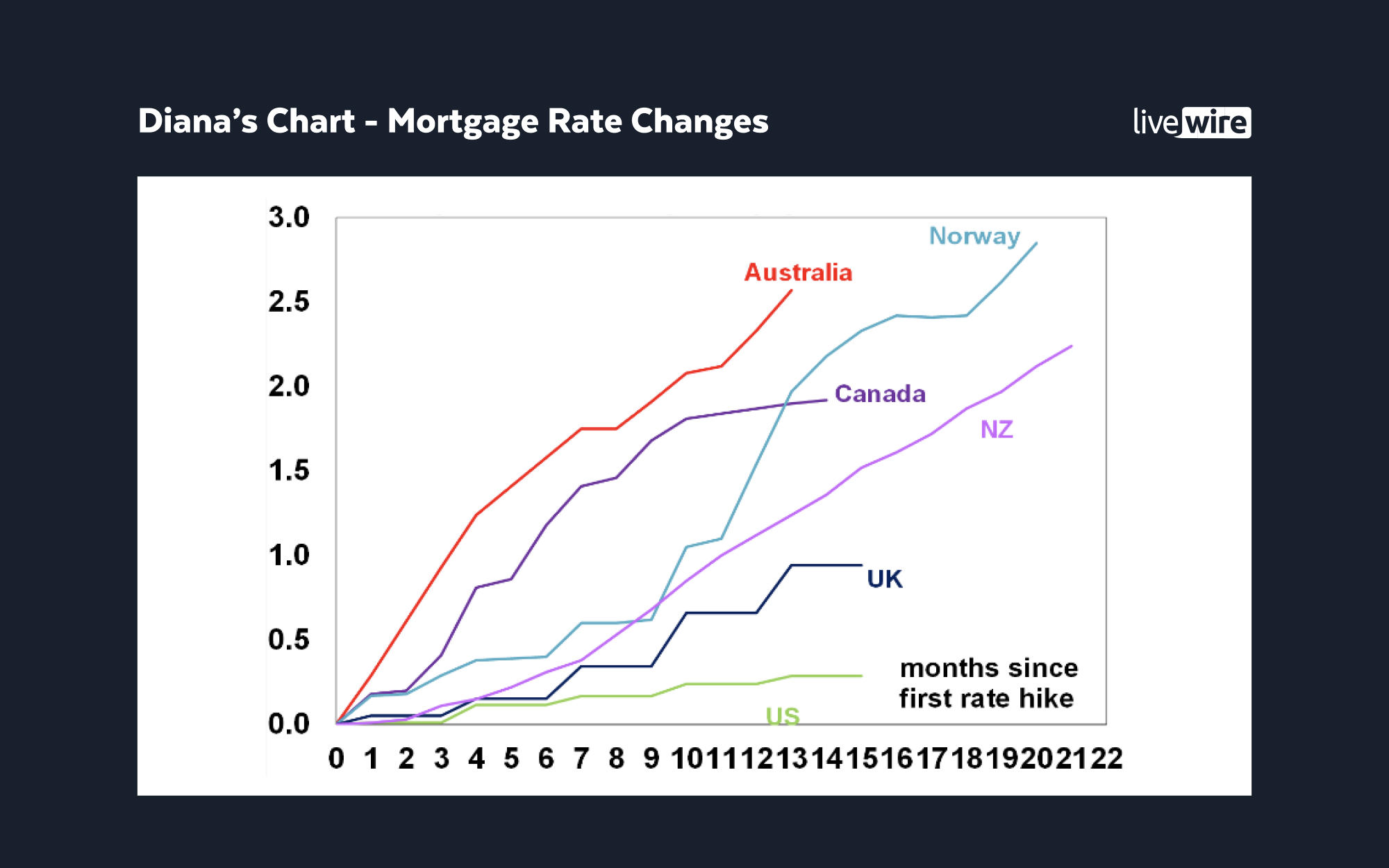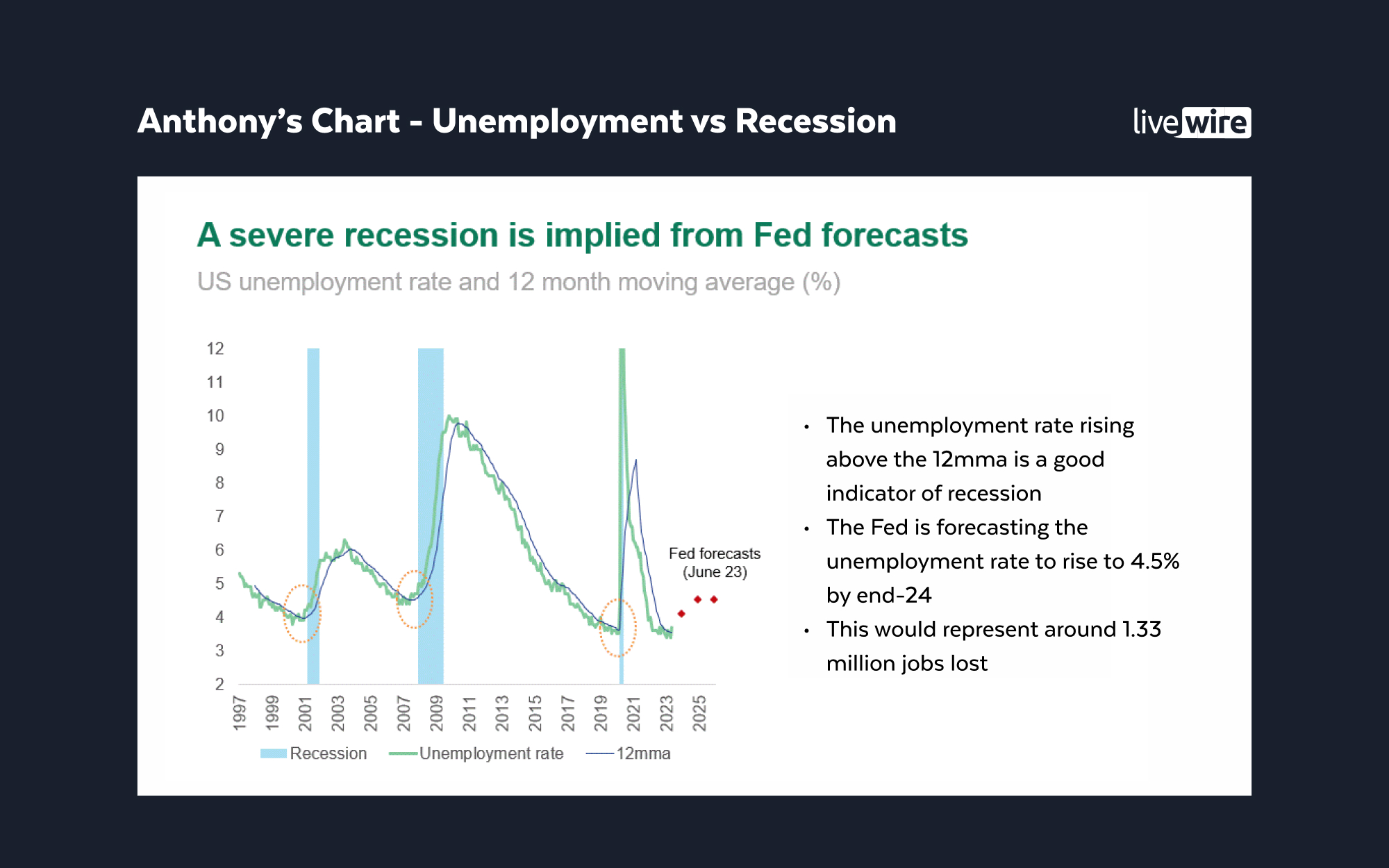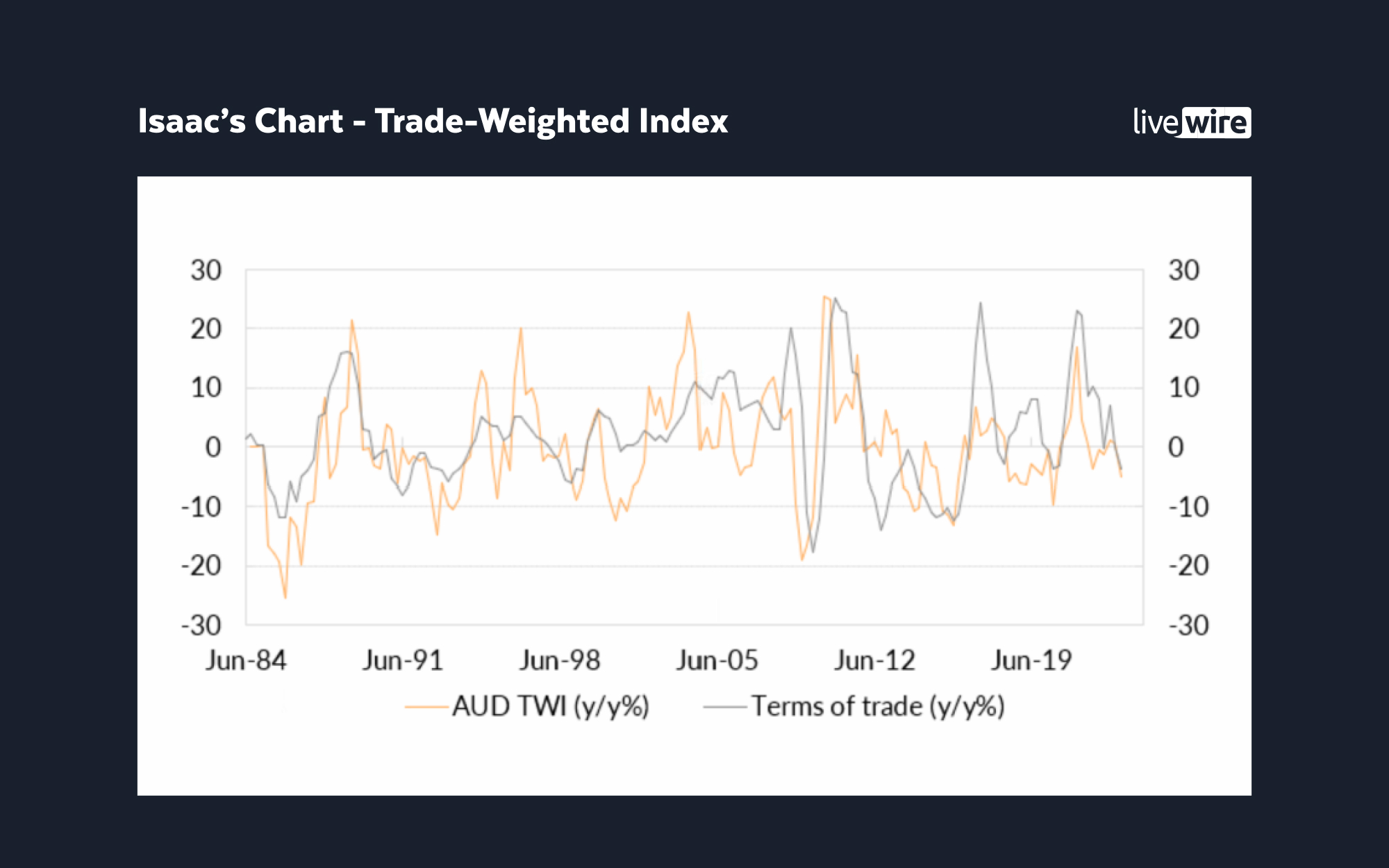10 things every investor should know right now
When I set out to create a macro-focused series 18 months ago, I had one mission. From the beginning, the aim has been to make economics and data more relevant to the everyday investor.
In every episode, we endeavour to take the most interesting headlines and narratives from the financial press before breaking them down in a way that you can use in your investment journey.
But as the series has developed its audience over the last 18 months, we've also learned there has been an appetite for education. Not just explaining why the data points matter, but what those data points are and why the professionals look at them so closely.
In that spirit, this month's edition of the show is an all-educational episode, aimed at getting you right across the key data points that every investor should know.
Plus, we'll also distil some jargon and central bank speak. If you've ever wondered why there's so much debate about the definition of a recession, why there are multiple measures of inflation, or how long it takes for interest rate hikes to hit your hip pocket, this show is for you.
To help us do this, we've recruited three of Australia's foremost economic and investment minds to help us achieve this goal:
- Diana Mousina, Deputy Chief Economist at AMP and our series regular
- Isaac Poole, Global CIO at Oreana Financial Services. Former economist at the RBA, Lloyds, and NSW Treasury
- Anthony Doyle, Head of Investment Strategy at Firetrail Investments. Former investment specialist at Fidelity International and economist at Macquarie Group
Note: This episode was taped on Wednesday 6 September 2023. You can watch the episode, listen to the podcast, or read our edited summary below.
EDITED SUMMARY
This episode is structured differently from a regular episode of Signal or Noise.
Topic 1: GDP (Gross domestic product)
Anthony: SIGNAL - Although it is a backward-looking piece of data, investors, policymakers, and economists all closely watch economic growth as a signal of where to invest.
Isaac: NOISE - There isn't much information in the headline that is useful to investors and he argues you can find better cues in the real economy.
Diana: Short-term noise, long-term SIGNAL - Long-term share market and dividend performance eventually fall in line with the strength of the economy.
Topic 2: Inflation
Isaac: (Critical) SIGNAL - Inflation is a signal for how demand is travelling in the economy but more importantly, it's a cue for what central banks will do with monetary policy.
Diana: SIGNAL - While investors are not in the business of forecasting, the best cue for next quarter's inflation report is the last report.
Anthony: SIGNAL - During the macro-driven market of 2022, 10 of the 12 most volatile trading days in the US were the days when inflation data was released. Ignore it at your peril.
Anthony also provided an explanation of how inflation and macro can help investors even if they have a bottom-up perspective on financial markets. To see that, watch the video or listen to the podcast.
Topic 3: PMIs (Purchasing Manager Indexes)
Diana: SIGNAL - Share markets can and do react to PMI data drops. They're also a good cue for GDP and what parts of an economy are thriving (or not).
Anthony: NOISE - In his nearly 20 years in markets, he's never had an investor ask him about PMIs. While a strong lead indicator, it's not useful for generating alpha.
Isaac: SIGNAL - In contrast, Isaac argues this is one of the best signals out there for investors. When the manufacturing PMI drops below 50, a slowdown is coming and anytime the manufacturing PMI drops below 45, a recession turns up within six months (without fail).
Topic 4: "Hawkish" and "dovish" labels
Diana: (Massive) SIGNAL - Markets will move on one-word changes in central bank statements or changes in communication.
Diana also provided a comprehensive explanation of what hawkish and dovish labels mean. To see that, watch the video or listen to the podcast.
Anthony: NOISE - There is so much emphasis placed on single-word changes. Ultimately, central banks are data-dependent and, as we've seen in recent years, they can be very wrong.
Isaac: SIGNAL - The Oreana team watches this closely to gauge what central banks are thinking - and when markets get it wrong, it provides potential trades.
Isaac also provided an explanation of how to read central bank speak and what tools can be used to gauge market interest. To see that, watch the video or listen to the podcast.
Topic 5: "Accumulated savings"
All three panellists gave a NOISE response to this topic but it's Isaac who arguably provided the best explanation as to why.
"There was a real signal in this 12 months ago and a lot of the market missed it because it's been a key reason why the US and Australian economies have been so resilient to rate hikes. That said, right now, I think it might be a bit of NOISE because savings have been wound down so quickly in the US. They're still elevated in Australia but I have a sense that in the cohorts that matter, those savings are gone."
Diana also noted that the term 'accumulated savings' has only been around since the COVID-19 pandemic. Most economists use the savings rate (issued by the ABS) as their nominal indicator for how cashed-up consumers are.
Topic 6: "Tight labour markets"
Diana: SIGNAL - While the unemployment rate is usually the last indicator to signal an economic trend's direction, there are cues investors can use to understand how tight or loose labour markets are. These include job vacancies, job advertisements, and SEEK's job applicant report.
Anthony: SIGNAL - "It's a nebulous concept built around the NAIRU [non-accelerating inflation rate of unemployment]," as Anthony puts it. While this all sounds like a lot of jargon, Anthony is simply saying that the term is important for central banks who use it to make monetary policy decisions. He thinks it's a signal to watch.
Isaac: SIGNAL - As he puts it, "the unemployment rate is effectively useless" but the rate of change in the jobs market is an important cue for a recession. It's not about where we've been but where we are going.
Topic 7: The technical definition of a recession
Anthony: NOISE - Speaking of jargon, Anthony is not a fan of this debate. We've seen recessions declared before the technical definition has been breached and at the same time, recession calls wound back even if the definition has been fulfilled. It's just something for the newspapers.
Isaac: NOISE - It's "pointless" to think about the definition. There wasn't a technical definition of a recession during the GFC in Australia. But to claim there wasn't a recession during this period is utterly wrong.
Diana: SIGNAL - When you look at the worst share market falls throughout history, it comes down to whether you are in a recession or not. Having said that, by the time you are in an official recession, it's probably too late to change your stock selection!
The Charts to Watch
Our guests also brought along charts that they could do some teaching with. The extra education topics are:
- Monetary policy lags
- The correlation between unemployment and recession
- Why the trade-weighted index matters even if you don't trade currencies
.jpg)



4 topics
2 contributors mentioned

